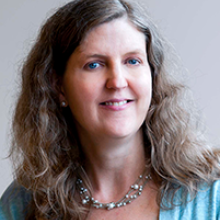Center on Advancing Measurement and Assessment

Rigorous approaches to measurement and assessment are essential for collecting trustworthy evidence and making informed decisions that improve lives in classrooms, workspaces, and the community. AIR's Center on Advancing Measurement and Assessment brings together skilled, multi-disciplinary experts who are committed to a collaborative, evidence-based approach.
Our Approach
We develop and improve measures and methods using the best available evidence. Center experts are skilled in combining well-established and innovative methods to develop rigorous measurement and assessment approaches for clients in the public and private sectors. In every project, we ensure a responsive process that prioritizes client needs and generates insights to inform decision making.
Center experts:
Laura Hamilton talks about the role of measurement and assessment in addressing systemic inequity and the potential implications of using artificial intelligence.
- Measure whole-person development. Our approaches enhance opportunities for all people to learn and thrive in school, the workplace, and society.
- Promote personalization and responsiveness. We identify and test features of assessments that better reflect social and cultural contexts, especially for populations that have been underserved by education and workforce development systems.
- Create resources and guidance for practitioners. We help practitioners understand and use measurement and methods in effective, efficient ways.
- Generate evidence to inform policymaking. We support decision-makers with actionable guidance across a range of areas, including accountability, educator development, and workforce preparation.
- Provide guidance to the research community. We develop tools and resources that support measure development, validation, interpretation, and use for research projects.
Center Updates

New Briefs: Survey findings on civics, social and emotional learning, and culturally responsive practices
CAMA experts analyzed survey data from a nationally representative sample of K-12 public school teachers who shared their perspectives on helping students learn and thrive.
This series includes three briefs presenting the findings in each key area.
Interested in Learning More?
Sign up to receive periodic updates from the Center
Center Goals
Our Definitions
Measurement: a systematic process of gathering data using instrumentation to generate inferences about attributes of individuals (e.g., learner outcomes, instructional practices) or organizations (e.g., school climate, community resilience)
Assessment: a process of inquiry to inform decision making about individuals or institutions through gathering evidence, making inferences, and reporting
- Develop and use assessment tools, practices, and policies that promote learning and thriving for all.
- Advance high-quality, technically sound measures that generate rigorous evidence and are appropriate for the populations we serve.
- Apply best practices for investigating and improving validity, fairness, equity, and cultural responsiveness in assessment to contribute to a better, more equitable world.
- Partner with and learn from practitioners, policymakers, funders, developers, community members, researchers, and technical assistance providers to advance best practices across all the domains in which we work.
- Invest in innovative approaches to measurement and assessment, particularly related to artificial intelligence, with an emphasis on helping to ensure beneficial outcomes for individuals and society.

